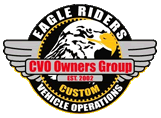ANd... TMax is NOT closed loop fuel control. TMax allows you to build a new map out of what has been seen by the TMax, it is NOT instantaneous.
That's false. The TMAX with autotune IS a closed loop system.
The TMAX will also autotune to achieve and maintain the desired AFR while riding. The maximum % of CLP offset (MAP) adjustment that will be made to the installed base map while riding is limited and controllable by the user (i.e. will not offset beyond a user set % offset limit, typically 10% per session map, 20% maximum map).
During the initial tuning process, after having loaded a base map close to your build, you ride the bike (on the road or dyno) and let it autotune (it'll determine and automatically apply the required amount of offset to the chosen base map within limit). If the required % of required CLP offset never exceeds the set maximum limits, you technically wouldn't have to update the base map to achieve the desired AFR.
However, ideally you modify the base map until the amount of offset required to achieve the set AFR is minimal (0% to 5%). When the base map is updated through the tuning software, the offsets applied while riding are incorporated into the new base map and then cleared (similar to resetting adaptive fuel). On next ride, the new map becomes the baseline and new starting/0 point for the maximum allowable CLP offset limit. You repeat this process until there is little or no autotuning offset being applied (allows a lot of room in either direction for autotune to correct if needed).
After the base map has been tuned so minimal offset is required to achieve the desired AFR, the TMAX will continue autotuning within the maximum CLP % limits to compensate for any changes in air density, fuel, etc. for any desired AFR value within the range of its Wideband O2 sensors. The Delphi system does this using adaptive fuel when operating in closed loop mode within the limited range of its narrow band O2 sensors. However the delphi system cannot compensate for conditions when operating in open loop outside of the narrow band O2 sensor range.
When it comes to autotuning the AFR to achieve and maintain a desired AFR, the TMAX does an excellent job.
However the TMAX does NOT auto-tune timing and has no knock control (no ION sensing like Delphi ECM).
The TMAX also does not determine what the ideal AFR and timing curves should be for your particular build/bike. Unless the base map closely matches your bikes build, your taking a stab in the dark as to what they should be. However, in this aspect, the TMAX is no different from the TTS or SEPST. Without a Dyno, you have nothing to reference to help you know where you need to go with these.
Because of this, ideally the bike should still be tuned on a Dyno by a skilled TMAX/TTS/SEPST tuner to dial in the base map.
The several TMAX base maps that I've played with on my softail were pretty conservative. I'm guessing this was to prevent a condition that could cause engine damage. However, my bike was very drivable after a short distance with all of the TMAX base maps that I've tried; idled great, no hesitation/flat spots, no knocking, ran cool, reasonable gas mileage (42-44) and pulled hard all the way to redline. I was satisfied enough that I decided not to have it dyno tuned. Because of this, I have no proof one way or another (outside of my butt dyno) that I'm making more power or how much I may have left on the table.
Community support for the TMAX and the availability of knowledgeable skilled TMAX tuners are both limited. I've personally received excellent support (base map and tuning questions) from Zippers for the TMAX although others have reported having the opposite experience.
Many of the problems people have experienced with the TMAX can be attributed to not using dielectric grease on the ECM and O2 sensor connectors during installation (and TBW servo connector as well). This is a problem shared with the Delphi system as well.
On the other hand, TTS support and tuner availability far exceed what is available for the TMAX.
As to warranty, all of them (TTS, SEPST, PowerVision/Commander, TMAX, etc) can void the warranty.
I've used the TMAX w/Autotune, TMAX TBW w/Autotune, TTS and SEPST. They all have pros and cons and any of them can provide a good tune.
Personally, my ideal ECM would be a combination of the Delphi system and the TMAX (wideband O2 with AFR Autotune) and incorporate a MAF sensor to eliminate the need for VE.
Just throwing in my two cents.
 Author
Topic: TTS or Thundermax? (Read 48395 times)
Author
Topic: TTS or Thundermax? (Read 48395 times)

